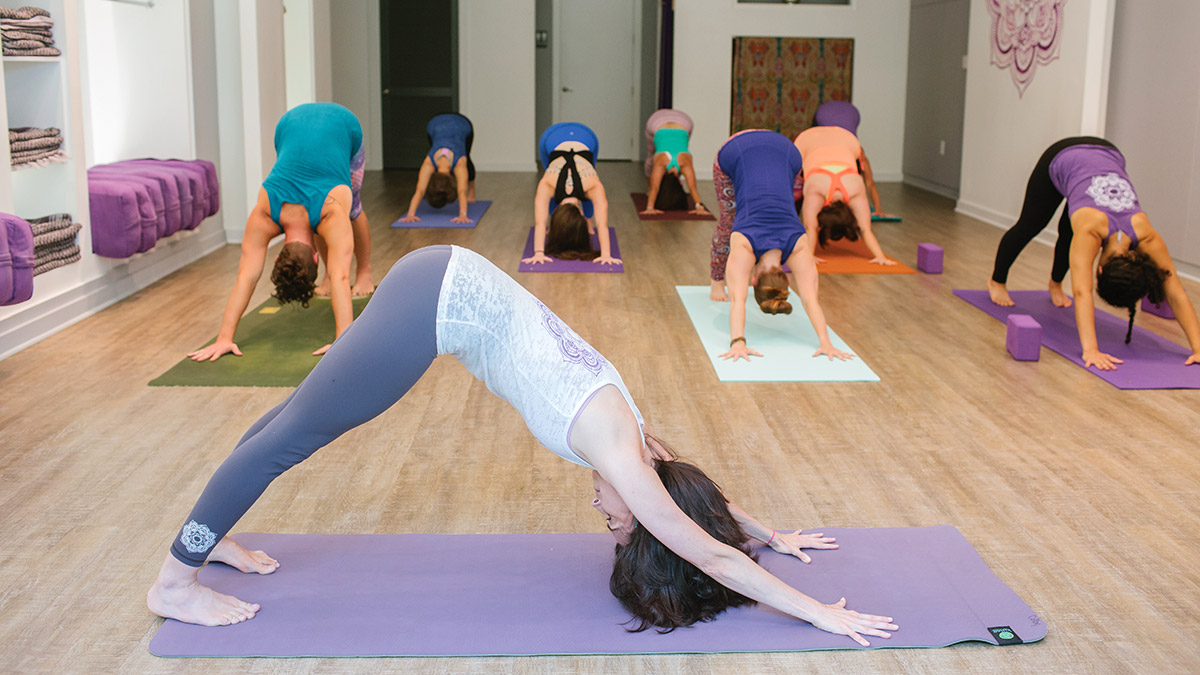Yoga is popular for all ages. Unlike many fitness activities or sports, yoga can be started at any age. Always consult your healthcare provider before beginning any new exercise regimen.

Better Balance:
Many yoga poses focus on strengthening the abdominal muscles and improving core stability. This helps people stay steady on their feet and reduce the risk of a fall.
Bone Health:
Studies consistently show that the weight-bearing postures of yoga helps slow bone thinning, reducing the risks of osteoporosis, particularly among postmenopausal women
Improved Flexibility:
Holding a pose for several breaths encourages muscles and connective tissues to relax and loosen, which helps to increase a range of motion. Research shows that regular yoga practice can dramatically boost the overall flexibility of older adults.
Enhanced Breathing:
The breathing control practices of yoga (known as pranayama) can expand your lung capacity and improve your pulmonary health.
Reduced Anxiety and Stress:
Research shows a clear correlation with focusing on the breath and synchronizing it with movement to keep the mind clear and engaged. Meditation and mindful breathing are pillars of yoga that encourage a focus on the present. Lowering the levels of the stress hormone cortisol can help ease symptoms of anxiety and depression.
Better Sleep:
Yoga can help alleviate sleep issues like insomnia, which are common complaints among seniors. Most people report significant improvements in both the duration and overall quality of their sleep when practicing yoga regularly.
Lose Weight:
Studies have shown that people who practiced yoga 3-6 times a week, lost pounds and inches faster than people who walked for the same 8 week time period.

